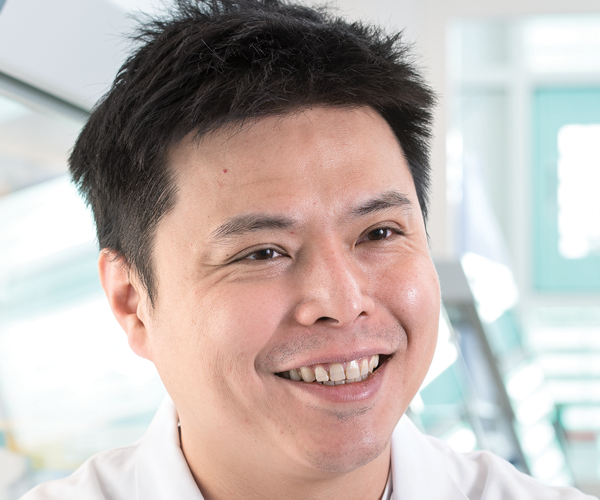
Tumor-associated macrophages can enter a state in which they support tumor growth (the M2 phenotype) or, alternatively, one in which they attack cancer cells (M1), and can be prompted to switch states by a variety of factors. A team co-led by Ludwig Lausanne’s Ping-Chih Ho examined how one such factor now being tested in clinical trials as a cancer therapy—the activation of the cell-surface signaling protein CD40—pushes macrophages into an M1 state. Other mechanisms that drive M1 polarization disrupt a central series of energy-harvesting reactions known as the TCA cycle and drive aerobic glycolysis, in which energy is extracted from glucose in the cytoplasm even in the abundance of oxygen. Ping-Chih and his colleagues reported in a February publication in Nature Immunology that CD40 activation does not disrupt the TCA cycle. Its signals instead switch on the metabolism of the amino acid glutamine and the oxidation of fats, which normally push macrophages into an M2 state. Under CD40 stimulation, however, the byproducts of those processes are used by the macrophage to epigenetically reprogram its genome, activating genes involved in anti-tumor responses. Ping-Chih and his colleagues argue their results support the use of drugs to precondition the metabolic state of tumor-associated macrophages prior to the use of CD40-activating therapies.
CD40 signal rewires fatty acid and glutamine metabolism for stimulating macrophage anti-tumorigenic functions
Nature Immunology, 2023 February 23